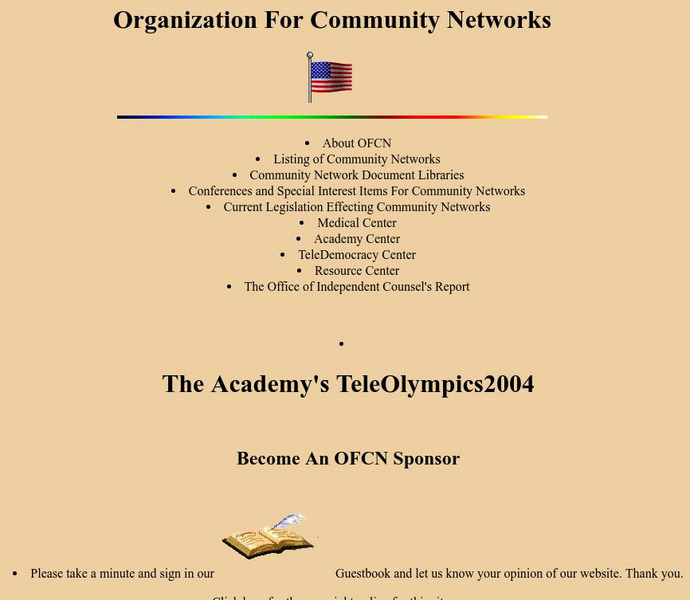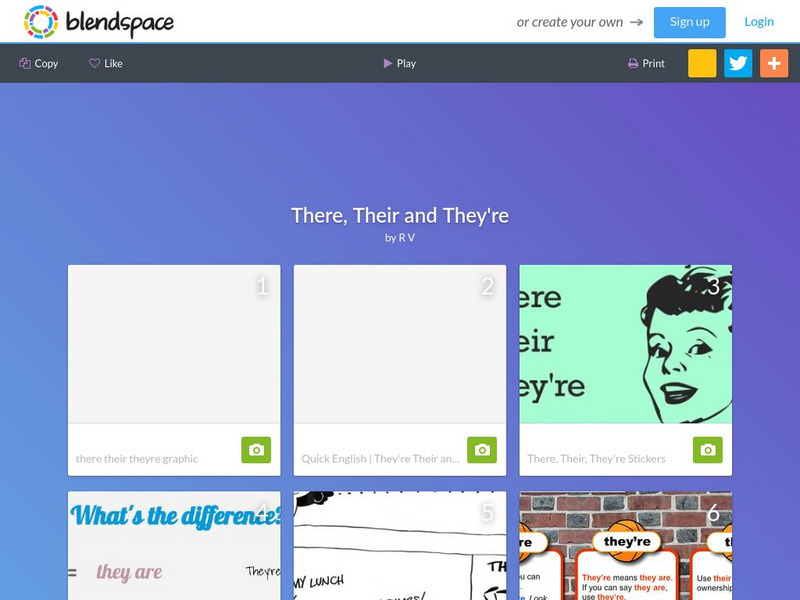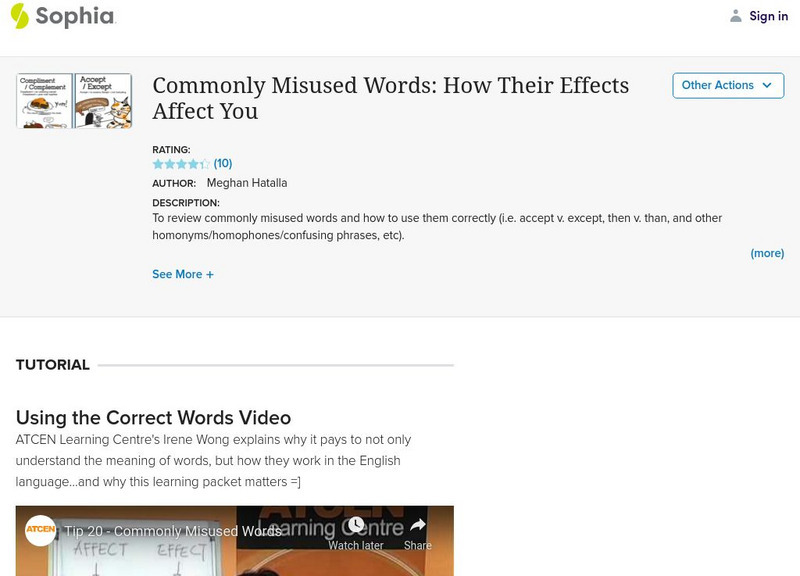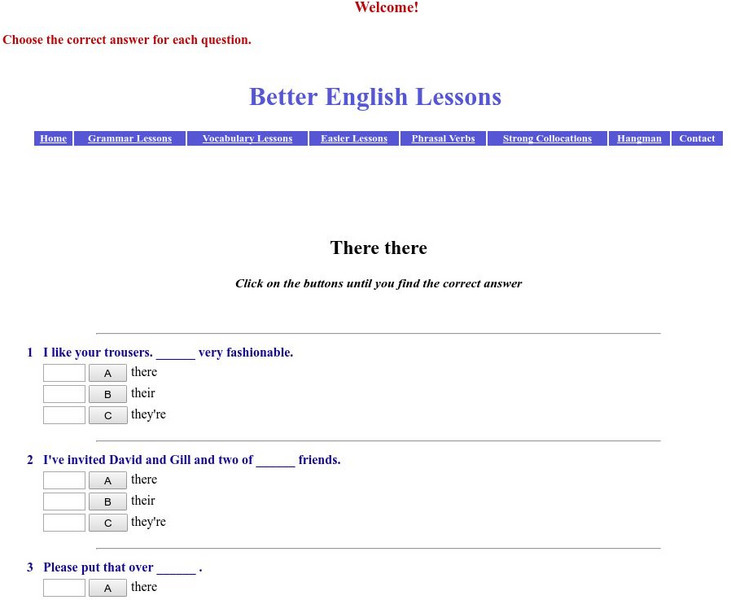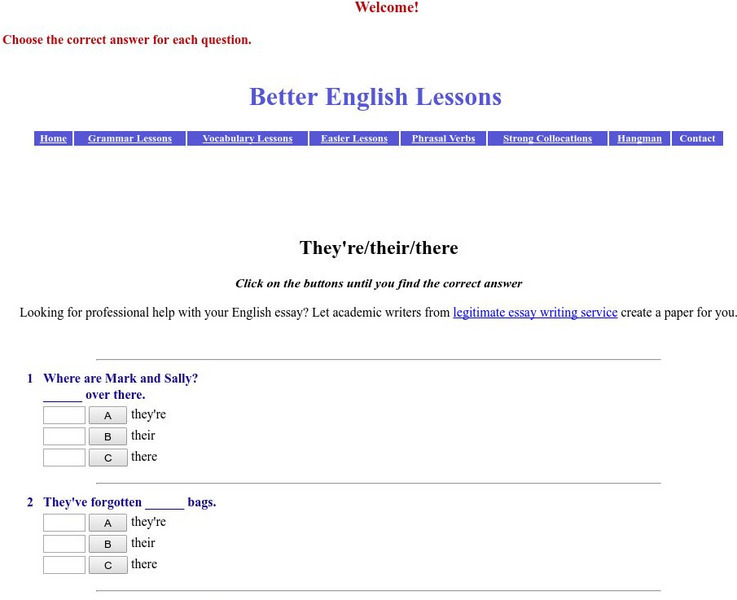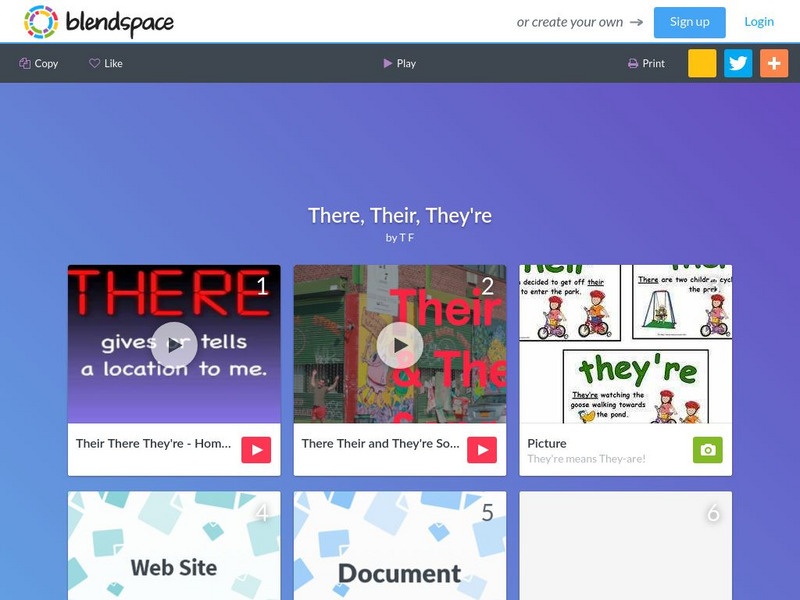Curated OER
Sensitive Synonyms
Third graders use a variety of hands-on activities to increase their understanding of synonyms. They exchange synonym plates with other groups and complete synonym puzzles by using the dictionary.
Curated OER
Synonymous Sharks
Students locate and read an Internet article on sharks. They write a summary of the article, and complete a Concept of Definition Map using information from the article.
Curated OER
Double Jeopardy-Homophones
Second graders identify homophones as words that sound alike but have different meanings. They, given a pair of homophones, are to explain the meanings of the words using gestures, role playing, or drawing a picture with their partner.
Curated OER
What is Your Story?
Students listen to Picnic In October and Memory Coat to explore the concept of memoirs. They interview a family member and write a personal memoir that reflects their own family history.
Curated OER
Her stories: African American folktales, fairy tales, and true tales
Students discuss the illustration's allusion to the myth, Pandora's Box. Students locate instances of folk sayings or expressions that make these tales seem authentic to the reader. Students draw a Venn diagram comparing Catskinella and...
Curated OER
Lawton: A Child of the Prairie
Students complete word study activities, read a story and write a descriptive paragraph about the setting of Goo Goo Avenue in Lawton 1901.
Organization for Community Networks
Ofcn: Horrid Homonyms
This site features a lesson plan for homonyms. Learners and teachers will benefit in their speech and writing skills after tackling this activity.
E Reading Worksheets
E Reading Worksheets: Homonyms, Homographs, and Homophones
In this learning module, students will distinguish among words that are homophones, homographs, and homophones. A video lesson and reinforcement worksheets are provided. This module is designed to support all students via hands-on...
TES Global
Blendspace: There, Their and They're
A sixteen-part learning module with links to images, texts, a video, and a quiz about the homonyms there, their, and they're.
British Library
British Library: Wilde's the Importance of Being Earnest: A Close Reading
In this lesson, students will consider several aspects of Oscar Wilde's most popular of comedies, "The Importance of Being Earnest". The success of this play is in part due to its examination of moral principles - in this case, the...
Sophia Learning
Sophia: Commonly Misused Words: How Their Effects Affect You
An informative, multimedia lesson on words that are easily confused in the English language. View a video [1:11], a poster, a slide show, and a handout to learn the correct meanings of several commonly misused words.
Better English Lessons
Pearson and Caroline Brown: Better English Lessons: There There
Twenty sentences where students are asked to fill in the blanks by clicking on the correct homophone: there, their, or they're. Immediate feedback is given on the answers to each question, and a percentage score for the exercise is tallied.
Better English Lessons
Pearson and Caroline Brown: Better English Lessons: There There
Fill in the blanks in twenty sentences by choosing the correct spelling of there, their, or they're according to the context of each sentence. Answers are marked right or wrong with each choice, and a total percentage score is tallied...
TES Global
Blendspace: There, Their, They're
A learning module that includes seven links to images, videos, activities, and a quiz about the homonyms: there, their, and they're.
Crayola
Crayola: Mixed Up Meanings: A Homophones Matching Game
Turn a grammatical challenge into an amusing word game with inspiration from Crayola Twistables Colored Pencils and Maya Angelou's book Angelina of Italy.
TES Global
Blendspace: Homophones
A learning module with 127 links to images, videos, and text to help students learn common homophones including sea/see, hare/hair, pear/pair, ate/eight, flour/flower, son/sun, one/won, and bear/bare.






